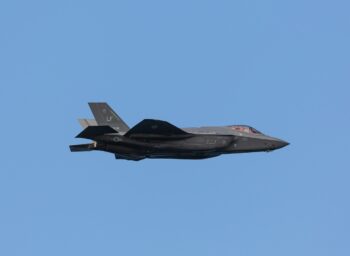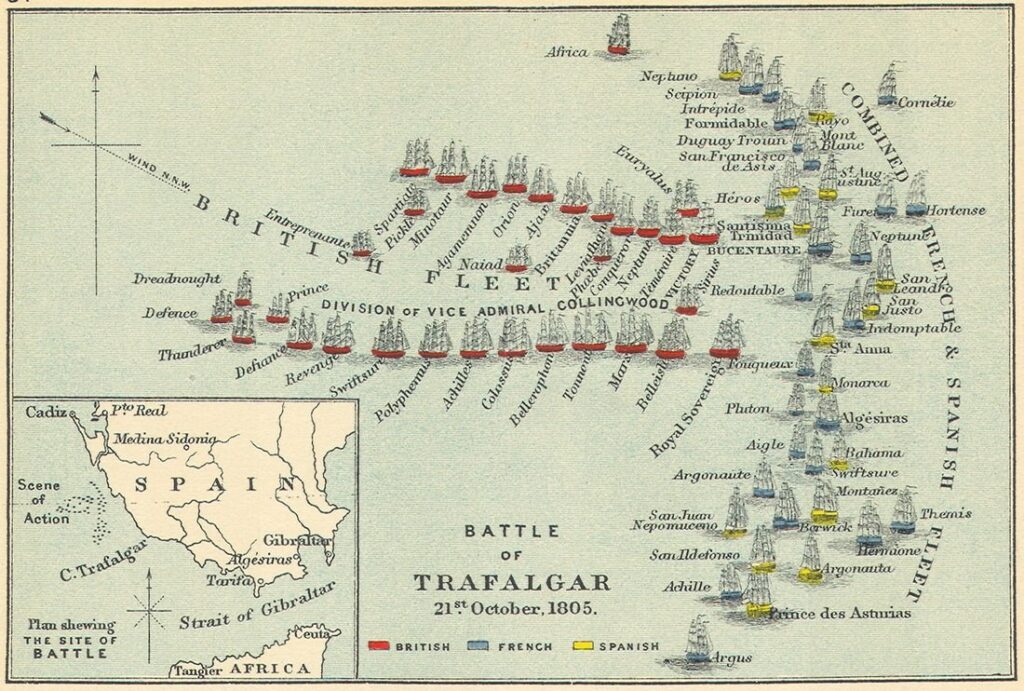As Ferguson’s law states, any great power that spends more on debt servicing than on defence risks ceasing to be a great power. While defence spending is expected to total £56.9 billion in 2025, debt interest is almost double that at £104.9 billion — comprising 8.2% of total public spending. All of this is to say that Army personnel would be vastly outnumbered by the Jihadists already monitored by foreign intelligence and MI5, plus those awaiting release in British prisons, and emigrating through legal and illegal means. Thanks to successive governments’ failure to prepare for this eventuality, and their exacerbation of the problem through permissive immigration policies, Britain is on the brink of the barbarians within its gates putting all we love to the torch.
|
|||||
|
is all the terrorism carried out by Muslims. The London bombings of twenty years ago are but one entry in a long, long list. Muslims are much more prone to commit acts of terrorism than any other group in the world. This has been true for forty years. No, this does not mean that all or most Muslims are terrorists. As I have often said, some of the bravest people in the world are Muslims who know that the terrorists can find them and their families and fight them anyway. No, this does not mean it is decent behaviour to buttonhole your Muslim work colleague and harangue him or her for the crimes of their co-religionists. It does mean that unless and until the Muslim world confronts the fact that most terrorism is Islamic terrorism, the non-Muslim world is rational to view Muslims with extra suspicion and to discriminate against them in matters of security. The idealistic refusal of the Western part of the non-Islamic world (or rather its political class) to do this is folly, a folly that will eventually backfire on Muslims living in the West. Remember that photo of Sir Keir Starmer and Angela Rayner taking the knee in support of the Black Lives Matter movement? Leaving aside the question of whether George Floyd’s death was murder – the late Niall Kilmartin thought it was not – it was inevitable that people would eventually ask why, if the then Leader of the Opposition and now Prime Minister of the United Kingdom was obliged to get down on his knees and beg forgiveness because the police in a foreign country had killed one man, should not Muslim leaders and opinion-formers make some similar acknowledgement that all these thousands upon thousands of murders preceded by a shout of “Allahu Akbar!” had something to do with Islam? Why can’t there be – why is there not – a “Kafir Lives Matter” movement? I remember when the main way to answer that question was to watch the News at Ten. More sophisticated people would read newspapers. The limitations of mainstream media are ever more apparent. The internet democratized information, so that should help. There are still various problems, including filtering and resources. YouTube is probably the most successful solution to the latter problem. It is possible to be a full time YouTuber focusing on a niche topic and earn a living. The former problem is hard. Search engines have bias; bots abound. I offer here a handful of ways I figure out what is happening. To answer specifically what is happening, lately I have found the Miltary and History channel useful. In the linked video he explains what is known about the results of the US strike on Iranian nuclear facilities, complete with satellite imagery. He has daily updates with information about multiple conflicts with lots of detail. He is analytical and unpolitical. To answer why it is happening, William Spaniel’s channel looks at events from the perspective of crisis bargaining theory: it is war economics where territory is the currency, hence the refrain that everything is about “lines on maps”. In the linked video he explains why the USA bombed Iranian nuclear facilities when it did, in terms of Israel setting the stage and creating a window of opportunity. More generally, the channel is useful for understanding why fighting is happening instead of negotiating, and how different things will have to look before negotiation is possible. For a broader perspective of capabilities and defense economics, there is Perun. He explains the principles, brings in real world data and describes the range of possibilities. An unexpected bit of information in the linked video is that Israel would likely run out of ammunition for its iron dome before Iran runs out of cheap, badly aimed ballistic missiles. That is why eliminating launchers is so important to Israel, and it affects how long an air campaign can go on for. In general, if I really want to understand something, I have found that finding a good specialist YouTuber is one of the better ways to do it. The feedback loop of financial reward and algorithmic feedback seems to work: not universally, but enough that there is a rich vein of good information on any given topic amongst the noise. For something lighter, I can also recommend Daniel Owen if you are looking to buy a GPU for your computer, and Chris Spargo for dull yet fascinating pop history like the story of nationalised pubs. Please add your recommendations in the comments. Personality traits such as patriotism and bravery are viewed as desirable within the military. This often encourages overt masculine behaviour amongst its members, therefore stepping outside the norm and challenging the group is often looked down upon and difficult to do. The task-focused approach can also lead to corners being cut if it is deemed that the ends justify the means, that certain actions or behaviours are tolerated if they achieve the desired result. The danger with this is that such undesirable behaviours, if tolerated for long enough, become the norm and the level of standards gradually erodes… Methods of bonding and creating team cohesiveness within the military often involve pranks and banter, but this isolates those who are different to the norm. – Group Captain Louise Henton OBE (£) writing in 2003 prior to her tenure as base commander for RAF Brize Norton. What could possibly go wrong? “This will be in textbooks”, writes Maria Avdeeva.
In one sense, of course, it has been done before. The military history of the twentieth century contains many examples of large numbers of planes being destroyed on their airfields – by the Japanese at Pearl Harbour, by the Germans at the beginning of Operation Barbarossa, and by the Israelis in the first hours of the Six Day War, to name but three. But such damage being done by itty bitty little drones that were considered little more than toys a few years ago is new. I know he trash-talks. I know that much of what he says is aimed at his base, so it should be taken with a pinch of salt, but this is bizarre. Greenland is not part of the United States and has no desire to be. If the USA wants to enter into trade talks that give them mineral rights or even defensive bases, then fine. But talk of taking it is no different to what is going on in Ukraine – a bigger, hostile neighbour taking by force. In reality, they could do it. Greenland could not withstand an invasion, and despite its tough talk, Denmark would be unable to offer much assistance. Denmark, like the rest of Europe, is weak defensively, and the US administration knows it. Despite the trash-talking, I really don’t think he would go that far. Would he? As I say, what the Hell is going on here? “The Russians are deemed to have agency: the could stop the war. Hamas are treated as if they lack self-determination: they are not held accountable for their crimes or expected to release hostages. Excuses are found for them, in a classic case of the racism of low expectations. Every attack on Israel triggers demands that Jerusalem surrenders territory, that it helps those seeking to exterminate it; things are that are (correctly) never demanded of Ukraine.” – Allister Heath, in an excellent take-down of the double-think that seems to operate with the UK government and much of the political/chattering classes about what is going on in Ukraine/Russia and Israel one against various Islamist forces. (Article is behind paywall.) As European countries, finally, crank up defence spending, International Traffic in Arms Regulations (or “ITAR”) are likely to come up in conversations. Reflecting on topics such as this got me thinking that so much of the Western supply chain in military kit is controlled by the US. On the positive side, you get economies of scale and all that comes with these kind of forces. For years, Americans have been keen on selling all this funky kit to the likes of Germany, Britain, etc. The problem is that to follow an independent foreign and military policy in this new era means that chain is breaking. There is talk that the US can operate a “kill switch” so that countries using certain US-made weapons cannot use them in ways that an administration does not like. It reminds me a bit of worries about Chinese electric vehicles being vulnerable to such a “switch”.  This seems in some ways to be a risk management issue. There is a broader Nassim Taleb-style point about making defence and security in the free world less fragile. Think how much of our defence and communications run off a handful of networks and suppliers. There are US satellites, cloud computing services from the likes of AWS, Microsoft, etc; military hardware suppliers in the US such as Lockheed Martin, Raytheon, Pratt & Whitney. And many more. These systems generate great efficiencies and rich export earnings, particularly for the United States. There’s a problem – a fragility. Europe has become dependent, complacent and comfortable. As we found out because of the 2008 financial crisis and covid, overconfidence in certain institutions (US government, central banks, medical experts) can lead to dangerous outcomes. There is a sort of moral hazard problem. Just as “too-big-to-fail” bank bailouts create foolish attitudes about risk, a sense that the US military or whoever would ride to the rescue of a country meant too many nations got complacent. In fact, it is possible to see some of what is going on right now in behavioural terms. Incentives matter. Shield people against certain costs, and they become spendthrifts, borrow too much, or assume they can strike attitudes on things and there won’t be bad outcomes. (See my related post on what countries such as in Europe, parts of Asia etc, do now.) The brutal Assad regime has collapsed. That is one on the eye for Russia, always a good thing, seeing the end of the Russian navy’s only base in the Mediterranean. And one in the eye for Iran, also a good thing, meaning they have little to no ability to continue supporting what is left of Hezbollah… but the motley crew who have toppled the Ba’athist Syrian regime have more than a few black ISIS/Al-Qaeda flags in their midst, so regardless of very conciliatory statements by HTS towards Syria’s non-Islamic population and even Israel, it remains to be seen how this will shake out. As a side note: when Patricia Marins predicted the rebel offensive would go nowhere, I became confident the rebels were headed for victory a week ago 😀 Trump has long argued it was unreasonable for US taxpayers to be subsidising Europe’s defence when European governments are unwilling to stump up to defend themselves. It seems that today, many European pundits are now belatedly in agreement with Trump, yet I have encountered quite a lot of annoyance when I point this out. It is hard to not laugh 😀 How to tell if the people in Europe making predictions of doom if Trump wins actually believe what they have been saying: Europeans defence expenditures go to 4%+ (i.e. Polish levels) within the next few months. Otherwise it’s just so much verbal flatulence. If Trump does indeed abandon Ukraine and tries to force a de facto surrender of occupied territories on them, and Europe still does not rapidly ramp up defence expenditure, then maybe Trump and the USA was never the problem. |
|||||

All content on this website (including text, photographs, audio files, and any other original works), unless otherwise noted, is licensed under a Creative Commons License. |
|||||




